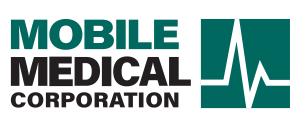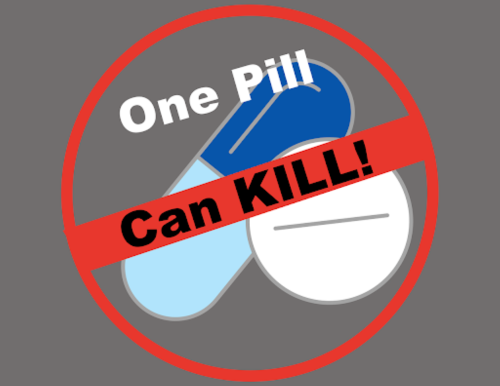A significant shift is on the horizon for workplace drug testing here in the U.S. On January 15, 2025, the Department of Health and Human Services (HHS) published a new rule that will require all federal workplace drug testing panels to include fentanyl and its primary metabolite, norfentanyl. This update took effect on July 7, 2025.
While this rule directly impacts federal agencies and contractors, its implications reach far beyond government workplaces. Fentanyl has rapidly become a leading cause of overdose deaths nationwide, and its presence poses a growing risk not just to individuals but to workplace safety as a whole.
As standards evolve to address this urgent threat, all employers (regardless of industry) should take note. Here's what you need to know about the new rule, why a fentanyl drug test matters, and how your organization can respond.
The Fentanyl Crisis: Understanding the "Why" Behind the Change
The reason for fentanyl's deadly impact lies in its extreme potency; it is approximately 50 times more potent than heroin and 100 times more potent than morphine. This means that a dose as small as a few grains of sand can be lethal.
Even more dangerously, fentanyl is often mixed into other illicit drugs without the user's knowledge. Individuals who believe they are taking a less potent substance, like cocaine or counterfeit prescription pills, are unknowingly exposed to a deadly amount of fentanyl. The Drug Enforcement Administration (DEA) has reported that last year alone, 6 out of every 10 illicit pills they tested contained a potentially lethal dose of fentanyl.
Employees under the influence of fentanyl can experience severe impairment, including respiratory depression, disorientation, and loss of consciousness, creating a grave risk not only to themselves but to their coworkers and the public.
Do Employers Test for Fentanyl Now? What's Actually Changing in Drug Panels
Both fentanyl and norfentanyl will now be screened for directly in urine and oral fluid tests.
Fentanyl itself is metabolized relatively quickly, but norfentanyl remains detectable in the body for a longer period. By testing for both the parent drug and its metabolite, employers can receive a more comprehensive determination of fentanyl use.
What's Staying the Same
The traditional five-panel drug test is still the foundation of federally mandated workplace testing, including:
- Marijuana
- Cocaine
- Opiates (including morphine and codeine)
- Amphetamines (including methamphetamine)
- PCP (Phencyclidine)
Fentanyl Test Requirements
The new standards come with strict requirements for laboratories and testing processes. Any lab conducting a fentanyl drug test for federally regulated employers must adhere to:
- Validated Testing Methods: Labs must use scientifically validated methods that can accurately and reliably detect the new analytes.
- FDA-Cleared Processes: The testing procedures must use kits and processes that are cleared by the Food and Drug Administration (FDA) for their intended use.
- NLCP Certification: All labs performing a fentanyl drug test must be certified by the National Laboratory Certification Program (NLCP), which is administered by the Substance Abuse and Mental Health Services Administration (SAMHSA).
Impact of the Fentanyl Drug Test on Different Industries

The new drug testing requirements for fentanyl will have a ripple effect across various sectors, particularly those with a focus on safety. The changes will directly impact federally regulated industries, but they also serve as a strong recommendation for private employers to update their own drug testing policies.
Transportation Industry
The transportation industry, which is governed by the Department of Transportation (DOT), is at the forefront of this change. With HHS adding a fentanyl drug test to its panels, the DOT has mirrored this standard. As a result, commercial drivers and other safety-sensitive employees in transportation are now subject to fentanyl testing.
Drivers with a Commercial Driver's License (CDL) are now being tested for fentanyl in addition to the other standard substances. This is critical for ensuring that those operating large vehicles and heavy machinery are not under the influence of a substance that causes extreme impairment and poses a significant public safety risk.
Federal Contractors and Safety-Sensitive Positions
In line with the DOT, most federal agencies and their contractors with employees in safety-sensitive roles will be required to comply with the new HHS guidelines. This includes a wide range of positions, from air traffic controllers to nuclear plant operators.
The goal is to standardize safety protocols across all federal workplaces, mitigating the risks associated with the misuse of dangerous opioids.
The Role of Private Employers
For private employers, the decision to include a fentanyl drug test is currently voluntary, but it is highly recommended. While not federally mandated, the presence of fentanyl in the general workforce is a growing concern. The 2025 Quest Diagnostics Drug Testing Index revealed that fentanyl positivity in random drug tests was more than 7 times higher than in pre-employment screens (1.13% vs. 0.14%). This statistic suggests a worrying trend of drug use after an employee is hired.
As a result, proactively adding fentanyl to a company's drug testing panel can help employers identify potential safety risks, reduce workplace accidents, and lower associated costs, such as workers' compensation claims and healthcare expenses.
Budgetary Considerations
Employers should plan for potential cost increases in their drug testing programs. The inclusion of new analytes, while a necessary step for safety, may result in slightly higher per-test costs.
However, this investment is a small price to pay when weighed against the massive financial and human costs of workplace accidents or lost productivity.
Common Employer Misconceptions About Fentanyl Testing
As we transition to this new era of drug testing, we must address a widespread misconception that has left many workplaces vulnerable: the belief that a standard drug test already covers everything.
Myth: "Our 5-panel or 10-panel test already covers synthetic opioids."
Many employers operate under the assumption that their existing drug testing program is comprehensive enough to catch all relevant substances, including dangerous synthetic opioids like fentanyl. They see "opioids" or "opiates" listed on the panel and assume that it covers all drugs in that class. Unfortunately, this is a dangerous and often incorrect assumption.
The opiates category in these tests is typically configured to screen for naturally occurring substances derived from the opium poppy, such as morphine, codeine, and heroin. Because synthetic opioids like fentanyl have a different chemical structure, they are often not detected by these standard panels unless the lab has specifically configured the test to include them.
This creates a significant and often unknown gap in an employer's drug testing coverage. An employee could be using fentanyl and still produce a negative result on a standard test, leading to a false sense of security and leaving the workplace exposed to all associated safety risks.
Solution: Proactive and Specific Testing
When ordering drug tests, employers must now explicitly request that fentanyl and its metabolites be included in the panel. Some labs offer specialized synthetic opioid panels that provide a more comprehensive screen for a wider range of synthetic substances, including fentanyl, tramadol, and oxycodone.
Simply put, you shouldn't assume your current testing program is sufficient. Now is the time to review your contracts with drug testing providers, update your policies, and ensure that your testing panels are a true reflection of the current drug landscape. Beyond complying with new regulations, you are taking a necessary step to protect your employees (and your business) from a very real threat.
The Business Case for Fentanyl Drug Test Adoption

For businesses, incorporating a fentanyl drug test is a strategic decision that offers significant benefits, creating a robust framework for safety, legal protection, and even a competitive advantage.
Workplace Safety and Risk Mitigation
The most compelling business case for fentanyl testing is the direct enhancement of workplace safety. By screening for this highly potent and often hidden substance, employers can significantly reduce the risk of on-the-job accidents and incidents.
Fentanyl use leads to extreme impairment, including loss of consciousness and respiratory depression, which can be catastrophic in any work environment (especially those involving heavy machinery, commercial driving, or public interaction). A proactive drug testing policy helps to deter use and provides a solid safety net, protecting not only the employee who may be using the substance but also their coworkers.
Legal and Liability Protection
When an employer demonstrates due diligence in maintaining a safe workplace, they are in a much stronger position to defend themselves against potential lawsuits arising from accidents or incidents. In adopting the same standards as federal agencies, private employers show a serious commitment to safety that can make all the difference in a legal context.
Public Health
Of course, businesses have a responsibility that extends beyond their own walls. Adding fentanyl testing allows your workplace to become an active participant in the broader effort to combat the opioid crisis.
Even better, the widespread adoption of testing will help to normalize the conversation around addiction and provide a pathway to help for employees who might be struggling.
Competitive Advantage and Reputation
Finally, being at the forefront of this safety initiative can give a business a significant competitive advantage. Demonstrating a commitment to the highest level of safety is a major selling point, attracting and retaining top talent who prioritize working for a responsible, secure employer.
It may also attract safety-conscious clients who prefer to partner with organizations that have robust risk management protocols.
Implementation Best Practices
For a successful and legally compliant transition to a fentanyl drug test, employers should follow a set of best practices that focus on three key areas.
Working with Testing Providers
It's critical to verify that your chosen lab is equipped to handle fentanyl testing accurately and reliably. You'll want to confirm their certifications, specifically the NLCP certification. Additionally, ensure they use FDA-cleared testing methods for both screening and confirmation.
Beyond certifications, take the time to understand the testing methods your lab will use. This includes knowing the specific detection windows for fentanyl in different specimen types (i.e., urine vs. oral fluid).
You should also discuss the costs and logistics of the new testing process. While a slight cost increase is expected, transparency about this can help with budgeting as well as planning.
Employee Communication
The success of any new policy hinges on clear communication with your employees. Beyond being a legal requirement, it's a way to foster trust and demonstrate a commitment to safety.
First, update your drug-free workplace policies to explicitly state that fentanyl and its metabolites are being added to the testing panel; this is a non-negotiable step. Next, provide education about these policy changes by explaining why the change is happening, referencing the public health crisis and the extreme safety risks of fentanyl. This helps employees understand the purpose behind the new policy to reduce pushback.
As you do so, be certain that all communication about expectations is clear and easily accessible. Always include information on the consequences of a positive test and the resources available for employees who may be struggling with substance use.
Legal Compliance
The legal landscape surrounding drug testing is complex and varies by location. To avoid potential legal challenges, employers must be diligent in ensuring compliance.
Remember to stay informed about state and local regulations. While federal guidelines set a baseline, some states may have additional requirements or limitations on workplace drug testing. You might also consider consulting a labor law attorney to help you navigate complexities and guarantee your policy is legally defensible.
Another key step? Maintain documentation of all policy changes, employee communications, and consent forms. Record-keeping is vital regarding due diligence and protecting your organization in the event of a legal dispute.
Looking Ahead: Future Considerations

The addition of a fentanyl drug test to panels is a landmark change, but it is unlikely to be the last. Employers should be thinking about what's next and how to maintain a proactive stance in an ever-changing environment.
Timeline for Full Implementation Across Industries
While the federal government has set the timeline for its regulated sectors, the full implementation across all industries will be a more gradual process. The speed of this adoption will vary by industry, company size, and the level of safety risk associated with the work.
Notably, we can expect to see a growing number of companies (particularly those in high-risk fields like construction and manufacturing) making this a standard part of their drug-free workplace policies throughout the rest of the year and into the next.
Potential for Additional Synthetic Drugs
The fentanyl crisis has brought to light the need for drug testing panels to be dynamic and responsive to new threats. Consequently, additional synthetic drugs will probably be added to federal and private testing panels in the future.
Substances like xylazine, a non-opioid sedative increasingly found mixed with fentanyl, are already on the radar of public health officials. This "tranq" has severe and unique side effects, and its increasing prevalence in the illicit drug supply makes it a potential candidate for future inclusion.
Monitoring Industry Trends and Regulatory Updates
Staying informed is no longer a passive activity; it's a critical part of risk management. Employers must actively monitor industry trends, particularly reports from the CDC, DEA, and SAMHSA. Regularly reviewing updates from federal agencies is essential for staying compliant and keeping policies relevant.
Join the Fight Against Fentanyl with Mobile Medical Corporation
Now is the time to act, not react. Here at Mobile Medical, we offer on-site drug testing services and comprehensive solutions to help you implement a modern, effective drug-free workplace policy.
Contact our team today to update your drug testing program and proactively safeguard your workplace!




